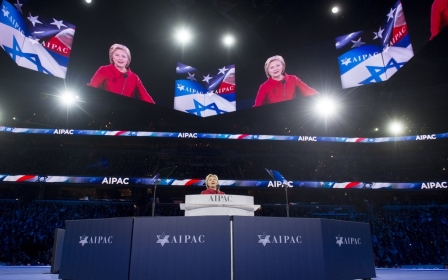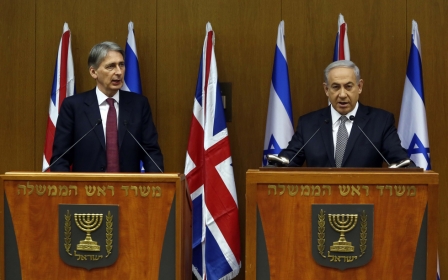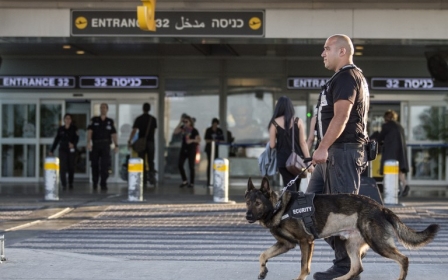To save his Middle East legacy, Obama must recognise a Palestinian state now

Driven by the search for his legacy in the Middle East, it seems President Barack Obama has decided to spend additional political capital on reviving Israeli-Palestinian talks before the end of his second term in office.
Last month, the Wall Street Journal reported that the White House is working on a renewed peace push, including a possible Security Council resolution or other initiatives such as “a presidential speech and a joint statement from the Middle East Quartet.”
While it is still unclear where President Obama is going with this renewed effort, he must understand that using the same old techniques of US mediation will only exacerbate the crisis, consequently tarnishing his legacy in the Middle East. To salvage his Middle East legacy, advance American interests in the Arab world and align with the position of the international community on this conflict, he must make the long overdue decision of recognising a sovereign and independent Palestinian state before leaving office.
First, Obama should learn from the mistakes of his predecessors, George W Bush and Bill Clinton, who also tried to reach a mutually acceptable agreement between the Palestinian and Israelis with only a few months left in office.
Reaching an agreement between the two parties under severe time pressure will not work. A party that is not interested in a peace agreement can easily manoeuvre by using delaying tactics until Obama’s term ends. Israeli Prime Minister Benjamin Netanyahu already utilised this strategy when he publicly rejected an invitation from Obama to visit the White House to talk peace because he wanted to “avoid any perceived influence” in the forthcoming US presidential election. These remarks came from the same person who meddled in domestic American affairs by aggressively lobbying against Obama during the last US presidential election.
Obama has already put in the effort by working with the parties, but now he needs to make decisions. Unlike many American presidents, Obama made the resolution of this conflict a top priority. Despite the brutal civil wars engulfing the Middle East region in the past five years, Obama demonstrated a firm commitment and allocated the needed political capital to make a breakthrough in the Israeli-Palestinian conflict. During his time in office, Secretary of State John Kerry spent more time on Israeli-Palestinian negotiations than any other international conflict. However, the outcome of the Obama administration’s intensive diplomatic efforts has been a total failure. These negotiations ended without an accord or even a memorandum of understanding, agreements that could have built on Obama’s legacy in the Middle East.
Nonetheless, Obama knows very well who made him fail. Netanyahu repeatedly defied Obama: In Congress, he refused to engage in serious negotiations that could have led to an agreement, and he publicly lobbied against Obama’s election for a second term. Obama should not expect Netanyahu to change his position and cooperate on any renewed efforts that could save Obama’s failed legacy in the Middle East. This is the same Netanyahu whom Obama increasingly grew frustrated with throughout his presidency.
With the remaining few months in office, the time has come for Obama to shape his legacy in the Middle East the way he wants it, not the way that Netanyahu has lobbied to characterise it. Obama has an opportunity to take his place in history as the first American president to officially recognise an independent Palestinian state.
Sooner or later, there will be a Palestinian state and the US will recognise it. Obama knows that very well. So why should he miss this opportunity and let another president recognise it in the future? Obama should worry about his own legacy, not Netanyahu’s extremist views. Obama should never allow Netanyahu to shape his legacy in the Middle East and leave it stained with failure.
Obama’s Middle East legacy is equally bleak in other parts of the region. Syria could become Obama’s Rwanda; Benghazi and the late Ambassador Chris Stevens are witnesses to his legacy in Libya; al-Qaeda in Yemen is much stronger today than when Obama intensified his drone policy against the organisation; only history will tell how the Iran nuclear deal turns out in the future. Unfortunately, Obama cannot change the facts in any of these countries with the limited time remaining for him in office. However, he can still restore his legacy in the Middle East by recognising a Palestinian state.
By recognising a Palestinian state now, Obama will have seized an historical opportunity to impact the future and establish a foundation for the next American administration in the Middle East. No matter who comes to the White House, they will have to deal with this new fact. Obama has the international community on his side in recognising Palestine. France recently stated that it will recognise an independent Palestinian state if a final effort to bring about peace fails. Additionally, Sweden has officially recognised Palestine.
American diplomats have a tradition of balancing their views after they leave office as they become free from the pressure of the Israel lobby and domestic politics. President Jimmy Carter is a one example of this.
Obama should not fall into this trap. No matter how he adjusts his views after leaving office, he will never save his legacy in the Middle East and the Israeli-Palestinian conflict if he does not recognise a Palestinian state while he still has the power to do so. The time is now and he must act rather than regretting it later.
President Obama, if not for your legacy, at least recognise Palestine for the Nobel Peace Prize that you received in advance. The committee trusted you and awarded you the prize before you achieved any real peace; do not disappoint them. Make sure you earn the prize, Mr President. If not for your legacy or the prestigious prize, then please do something for your own personal pride and be the one who laughs last, not Benjamin Netanyahu.
Mr President, recognise Palestine now.
- Ibrahim Fraihat is a senior fellow in foreign policy at the Brookings Institution’s Doha Center and affiliate scholar at Georgetown University. He is the author of the book “Unfinished Revolutions” (Yale University Press 2016). You can follow him on Twitter @i_fraihat
The views expressed in this article belong to the author and do not necessarily reflect the editorial policy of Middle East Eye.
Photo: A Palestinian man walks past a stall selling a T-shirt picturing a waving US President Barack Obama wearing the traditional Palestinian keffiyeh, in Jerusalem's Old City on 15 June 15, 2009 (AFP).
Middle East Eye propose une couverture et une analyse indépendantes et incomparables du Moyen-Orient, de l’Afrique du Nord et d’autres régions du monde. Pour en savoir plus sur la reprise de ce contenu et les frais qui s’appliquent, veuillez remplir ce formulaire [en anglais]. Pour en savoir plus sur MEE, cliquez ici [en anglais].





